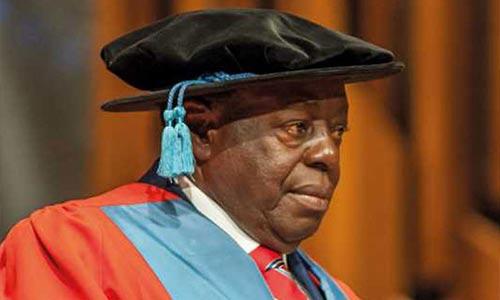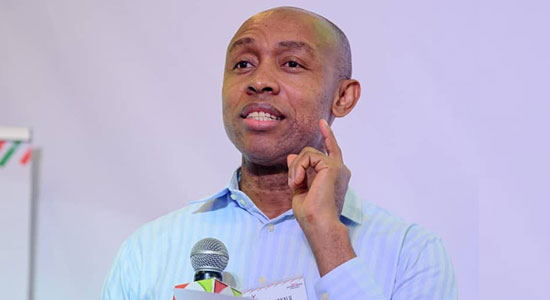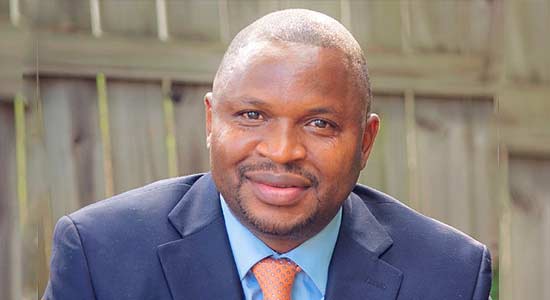The Need For Greater Women’s Participation In Politics

BACK in 2014 when President Goodluck Jonathan convened the National Conference, one of the outstanding recommendations was the need to forge a constitution which will ensure equity, fairness and justice to all Nigerians. Having realised that the existing constitutional guarantees are not totally effective in preventing discrimination based on sex, religion, ethnic affiliations, the recommendation came in light of the need to ensure an all-inclusive participation of Nigerians in every sphere of the nation’s endeavour. It is evident today that women still suffer a lot of discrimination especially in their participation in politics. I therefore intend to examine an issue which continues to attract much concern not only from the women folk of our great country but also from every Nigerian who is appalled by the limited opportunities afforded women to effectively participate in politics in Nigeria.
I have used the word “effectively” advisedly as it cannot be disputed that women do participate in one form or the other in politics in Nigeria. Virtually all Political Parties in Nigeria have strong women wings which are designed to coordinate and maintain the support base of each party amongst women. Women after all are universally acknowledged to constitute an important unit of any electoral or political demography. It is however sad that Political Parties seem to be content with letting women bear such titles as “Women Leader”, “Deputy Women Leader”, “Chief Women Organizer” etc without really affording them a real opportunity of contributing politically to the development of this Country.
Sadder still is the fact, as suggested byvavailable data, that our women due to decades of forced submission to outdated ideologies regarding the role of women in society, may have come to regard themselves as eternal followers in the political schemes of events, only to be seen and never to be heard. Happily, and I do derive enormous satisfaction from this, increasing public discourse on the role of women in politics spurred by women themselves leave no room for doubt that Nigerian Women recognize the fact that much more can be achieved from their increased participation in politics and are not prepared to seat idly by whilst waiting for such opportunities which history teaches are seldom given freely and must on the contrary be demanded and when granted be protected.
Prior to and since independence, the issue of the role of women in politics in Nigeria has continued to attract debate. At one end of the divide are strong women’s rights advocates who argue that anything and everything must be done to ensure increased participation of women in politics. At the middle are those who concede that Nigerian women deserve more opportunities to participate in the governance of the country and that since political office can only be attained by participation in elections that more needs to be done to provide such opportunities. At the other extreme are those who hold the view that women have absolutely no role in politics and should be confined strictly to the home. As anachronistic as this sounds, it was expressed in 2010 by a notable figure in the South West, who declared openly that he would never allow his wife to participate in politics. Persons who share this view often consider women as too critical and uncompromising when they occupy top positions.
This debate is necessary when a careful analysis of data presented by the Independent National Electoral Commission (INEC) is examined. In 1999, women recorded only 3 per cent representation in contested offices. In 2003, the figure rose to 4 per cent followed by a further improvement to 6 per cent in 2007. However, from 1999 to date, no woman has been elected the Governor of a state in Nigeria. Whilst some women contested and won elections into the Houses of Assembly of some States, the level of representation is still very low. In 2003, there was no female member of the Houses of Assemblies in Adamawa, Cross River, Ebonyi, Jigawa, Kano, Katsina, Kebbi, Nasarawa, Oyo, Sokoto, Yobe and Zamfara states.
Women’s participation in politics in the pre-colonial, colonial and post-colonial era
In the pre-colonial era, Nigerian women were highly integral in the political set up of their communities. For instance, in pre colonial Bornu, women actively participated in the administration of the state, complementing the roles played by male counterparts. In the political history of ancient Zaria, women also played a very significant role. In fact, the modern city of Zaria was founded in the first half of the 16th century by a woman called Queen Bakwa Turuku. She had a daughter called Amina who later succeeded her as Queen. Queen Amina was a great and powerful warrior who built a high wall around Zaria in order to protect the city from invasion and extended the boundaries of her territory beyond Bauchi and she made Zaria a prominent commercial centre. In the ancient Yorubaland, the Oba ruled with a number of women referred to as female traditional chiefs who consisted of eight titled ladies of the highest rank. Other prominent women include Moremi of Ife, Emotan of Benin and Omu Okwei of Ossomari whose impact and contribution to their communities is forever etched in the Nigerian historical books. Moremi and Emotan were great amazons who displayed wonderful bravery and strength in the politics of Ife and Benin respectively, while Omu Okwei dominated the commercial scene of Ossomari in present day Delta State.
The advent of colonialism saw a steady decline in the participation of women in po and more particularly their disenfranchisement. It was only recently, in the 1950s, that three women were appointed into the House of Chiefs, i.e., Chief (Mrs) Olufunmilayo Ransome Kuti who was appointed into the Western Nigeria House of Chiefs, Chief (Mrs) Margaret Ekpo and Janet Mokelu who were both appointed into the Eastern Nigeria House of Chiefs.
Conversely, women undertook a greater participation in the post-colonial era. In the Second Republic, few women were elected into the House of Representatives and the Houses of Assembly. In addition, two women were appointed as Federal Ministers. They were Chief (Mrs) Janet Akinrinade (Minister for Internal Affairs) and Mrs Adenike Ebun Oyagbola (Minister for National Planning). The first formal quota system for women participation in governance was introduced during the Buhari-led military rule. Under this system, at least one female was appointed as a member of the Executive Council in every state. The return of democracy in 1999 came with the prospect of ensuring the greater participation of women in politics. However, Nigeria is yet to implement the declaration made at the fourth World Conference on Women in Beijing which advocated 30% affirmative action, or the recommendation of the National Gender Policy (NGP) for 35% affirmative action in both elective political and appointive public service positions.
Conclusion
The statistics of women participation in Nigerian politics is not rather minimal. A lot still needs to be done to give women more room for participation in politics. It does appear that the huge and overwhelming representation of women at most political rallies has not transformed to increased opportunities for women to contest election. One of the identified challenges facing a greater involvement of women in politics is the patriarchal system being operated in Nigeria. Other factors include low level of education, political violence, religious and cultural barriers, among others. Nevertheless, there must be an enabling environment for Nigerian women to participate effectively in shaping the political landscape of the country. This could be actualised by the introduction of the quota system in our laws for the participation of women at all levels of government, and further engaging the relevant stakeholders such as the political parties and the INEC to ensure strict compliance. Also, it is paramount that there be an advocation for the political and economic empowerment of women, as well as their protection from abuse.
There must in addition, be a review of all existing legislations, or the enactment of new ones, to accommodate the participation and effective involvement of women in politics in both elective and appointive positions.
AFE BABALOLA, OFR, CON, SAN, LLD.D.Litt.



